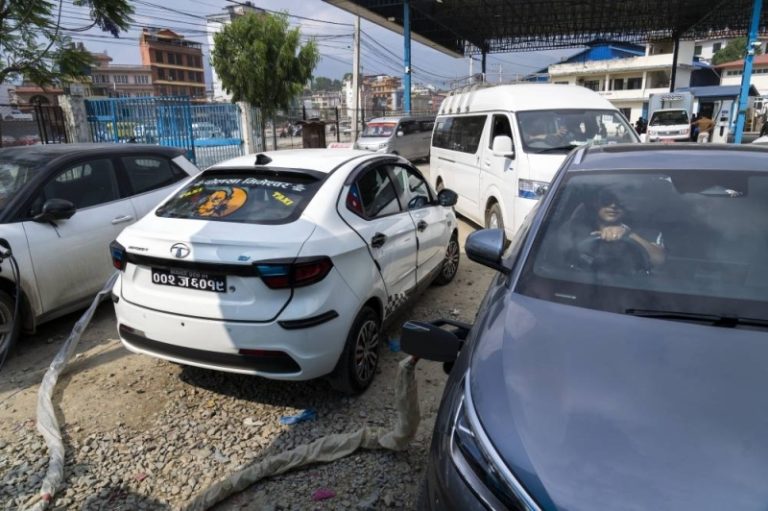Nepal has imported over 14,000 electric vehicles from China through the Rasuwagadhi border point over the past ten years. This information was shared by the Rasuwa Customs Office. It shows Nepal’s growing interest in clean and green transport.
A total of 14,500 electric vehicles have entered Nepal through the Rasuwagadhi-Kerung route. However, only 2,570 of these vehicles have cleared customs and are currently on their way to Kathmandu. The rest remain stuck at Timure, Ghattakhola, and Rasuwagadhi due to customs delays.
These delays are caused by limited customs staff, small processing areas, and slow paperwork. As a result, vehicles wait for several days before they can move forward. This has created space and traffic problems at the border point.
Besides electric vehicles, Nepal also imports goods such as footwear, clothes, and electronics through this same border. Over the years, Rasuwagadhi has become one of Nepal’s busiest trade entry points.
The rise in electric vehicle imports follows government efforts to cut fuel use and reduce pollution. In the last few years, Nepal has offered tax discounts on electric vehicles. These policies have helped people switch to cleaner transport, especially in cities like Kathmandu.
However, the shift to electric vehicles is still facing some problems. There are not enough charging stations across the country. Spare parts are hard to find. Many skilled workers to repair electric vehicles are also lacking.
To solve these issues, the Nepal Electricity Authority is working on building new charging stations in cities and along highways. The government also plans to increase the number of electric vehicles on the roads to 25 percent by 2030.
Trade through Rasuwagadhi has brought more business to local towns like Timure and Syabrubesi. Hotels, shops, and workshops have opened to support truck drivers and traders. But the growing number of parked vehicles has caused traffic and safety concerns.
Local leaders have asked the government to expand customs space and make the process faster. Without changes, the delays could get worse as trade continues to grow.
Nepal’s import of electric vehicles is a sign of progress. But the full benefit will only come if the customs system works smoothly and the country invests in better transport support. If done right, this shift can help Nepal move closer to a cleaner, cheaper, and greener future.


